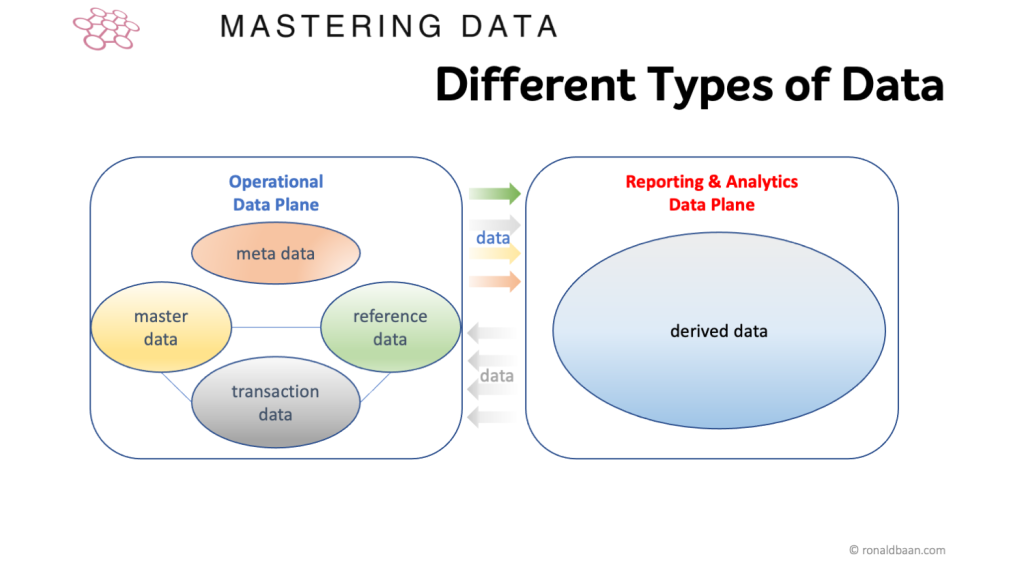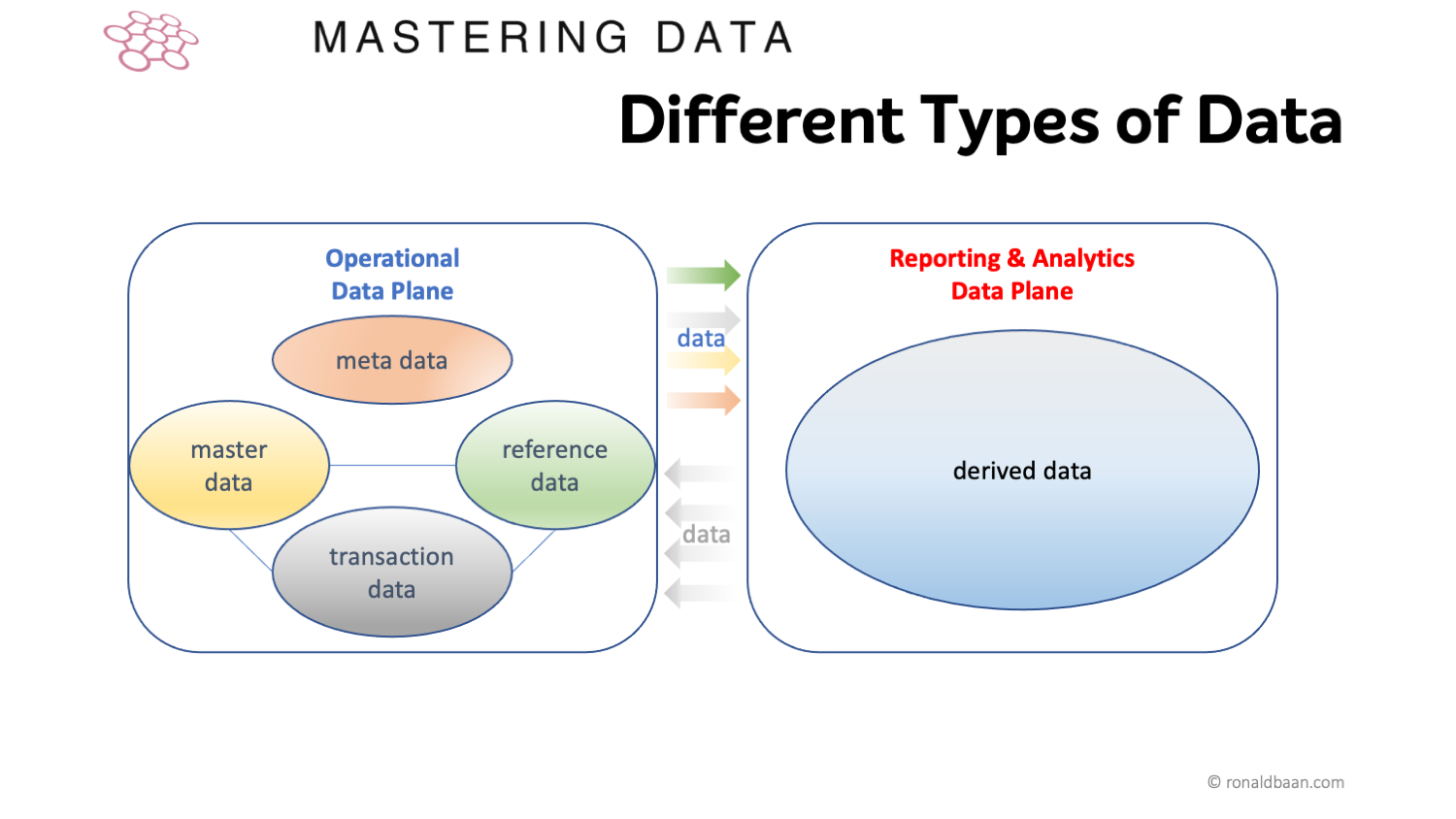Often a picture or an image (in words) says more than a lot of talking and explanation. So does a picture of data. What types of data are there really?
Actually, there are only 4 types of data:
- master data – the business objects and concepts that form the context of the organization;
- reference data – classifications and references that can be used in business objects and transactions;
- transaction data – a relationship between 2 or more business objects over time;
- meta data – describes a collection of data.
Whereas master data can often be a complex data object (a customer, a premises), reference data is often more like a list of standardized values (ISO 3166-1 country codes, cost centers in your organization) or a taxonomy. A transaction is what an organization is all about (a customer makes a payment for a product).
As you can imagine, these different types of data are different in size, growth, mutation process and also have different requirements for data management. The beauty of differentiation is that data management can be better tailored to the need.
Also in #DAMA#DMBoK we differentiate these types of data, see Chapter 2 “Essential Concepts,” section 2.5.10 “Different Types of Data.”
As a 5th type we can distinguish analytical data. This can safely be called derived data, data obtained from all kinds of sources, processed according to business rules, queries, algorithms and used in reports, machine learning, analysis, etc. This data can potentially be “re-created” from the original data (if the algorithms, etc. are also still available).
So with these characteristics, you will also set up data management for this type of data differently (smarter and more focused).
Data management is not 1-size-fits-all; it is precisely by setting it up according to your needs that you invest smartly and get the most value out of it.
The beauty of #DAMA#DMBoK is that terms I use above are established with good definitions. That is, more and more people who are certified in DAMA (CDMP: Certified Data Management Professionals) speak the same language and thus know exactly what we mean by master data, modeling, data governance, what is involved in data security.
We are constantly working to spread knowledge to make data professionals even better. Will you also support us so that we can get DAMA in the curriculum of MBO, HBO and Universities, make it part of “lifelong learning” and much more to educate, retrain and help data professionals move forward?
https://lnkd.in/e_-MRMFj


